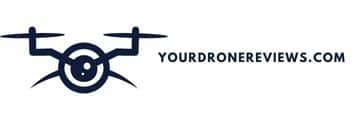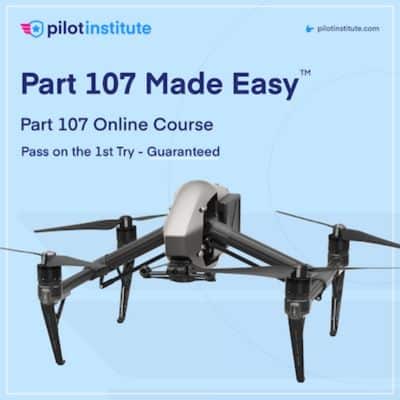In this article on how to become a commercial drone pilot, we will explore the remarkable transformation of drones from mere hobbyist gadgets into multipurpose tools employed across numerous industries. As technological advancements make these devices increasingly accessible, they are now utilized for a wide array of applications, including aerial photography, mapping, infrastructure inspection, and agricultural use. The expanding demand for drone services has opened a wealth of opportunities for those interested in pursuing a career as a commercial drone pilot in this rapidly growing field.
How To Become A Commercial Drone Pilot
Becoming a commercial drone pilot in the USA is a process that requires both knowledge and practical experience. The FAA is responsible for regulating the use of drones in the United States. There are several steps that must be followed to become a certified commercial drone pilot.
Pass the FAA Part 107 Test
The first step to becoming a commercial drone pilot is to pass the FAA’s Part 107 test. This test covers a wide range of topics related to drone operations, including weather, regulations, and aircraft operations. It is a computer-based test that can be taken at an FAA-approved testing centre. Studying and preparing for the test is recommended by taking a training course.
Many different organisations offer these courses; one of the best Part 107 Study Guides is from the Pilot Institute, which has a 99%+ success rate with its students.
Once you have completed the course, you will be eligible to take the FAA Part 107 test. The test consists of answering 60 multiple-choice questions and requires candidates to answer at least 70% or 42 questions correctly to pass.
Obtain a Remote Pilot Certificate
Once you have passed the Part 107 Test, you will need to apply for your Remote Pilot Certificate. This certificate is issued by the FAA and is required in order to operate a drone for commercial purposes. The application process can be done online and requires a background check and proof of passing the Part 107 Test.
Register your Drone with the FAA
In addition to obtaining the FAA Part 107 Certificate, you must also register your drone with the FAA. This is a relatively simple process that can be done online. You must provide information about your drone and pay a registration fee. Once your drone is registered, your registration number must be displayed on the drone.
Follow FAA Safety Guidelines
As a certified drone pilot, you must follow all FAA safety guidelines for flying. This includes maintaining a safe distance from other aircraft, people, and buildings and avoiding flying in restricted airspace.
All drone pilots who have passed the Part 107 test can operate in Class G airspace, and they are not required a obtain a waiver to fly at night as long as the drone has an anti-collision beacon and is always in the pilot’s line of sight. If you think your commercial operations will need you to operate in restricted airspace, you must apply for a waiver from the FAA.
Get Practical Experience
While passing the test and obtaining the Remote Pilot certificate are essential steps, it’s also important to gain practical experience operating a drone. You should take a flight training course to learn how to operate a drone and become proficient in flying safely. This will also help you better understand the FAA regulations and guidelines.
Becoming a commercial drone pilot in the USA can be challenging, but with the proper training and experience, it can be a rewarding career. With the increasing demand for drone services in various industries, the potential for growth and job opportunities in this field is significant.
Benefits Of Becoming A Commercial Drone Pilot
Becoming a commercial drone pilot can offer a variety of benefits, including:
Job Opportunities
The use of drones in a variety of industries is rapidly increasing, creating a growing demand for qualified commercial drone pilots. This means many job opportunities are available for those with the proper training and experience.
High Earning Potential
As the demand for drone services increases, so does the earning potential for commercial drone pilots. According to salary.com and glassdoor.com, the average salary for a commercial drone pilot is around $80,000 per year.
Variety of Industries
Drone technology is being utilised in many industries, including agriculture, construction, real estate, and film production. This means that commercial drone pilots have the opportunity to work in a field that aligns with their interests and skills.
Flexibility
Many commercial drone pilots work as freelancers or contractors, which can provide a great deal of flexibility regarding scheduling and location.
Exciting and Challenging Work
Flying drones can be an exciting and challenging job. It requires great skill, focus, and attention to detail, making it a rewarding and satisfying career.
Contribution to society
Many industries use drones for safety, security, and inspection purposes. As a commercial drone pilot, you have the opportunity to contribute to society by providing essential services that improve safety and efficiency.
Overall, becoming a commercial drone pilot can be a highly rewarding career that provides a high earning potential, job opportunities, and the chance to work in a variety of industries. With the increasing demand for drone services, this industry is growing rapidly.
Commercial Drone Pilot Salary
As a commercial drone pilot, your salary will depend on various factors, including your level of experience, the type of company you work for, and your job location. However, on average, commercial drone pilots can expect to earn a salary in the range of $50,000 to $80,000 per year.
According to salary.com, the average salary for a commercial drone pilot is around $80,000 per year. Entry-level positions may start around $40,000 annually, while experienced pilots with several years of experience can earn up to $80,000 or more annually.
It’s important to note that these numbers are based on an average and may fluctuate depending on location, industry, and company. For example, pilots for large companies may earn more than those working in rural areas and small companies.
Additionally, pilots working in industries such as construction, oil and gas, or power line inspection may earn more than pilots working in other sectors such as wedding or real estate photography.
It’s also important to mention that many commercial drone pilots work as freelancers or contractors, which can provide a great deal of flexibility in terms of scheduling and location but also have a highly variable income depending on the contracts they get.
Becoming a commercial drone pilot can be a highly rewarding career with a high earning potential. Still, it’s important to keep in mind that salary can vary widely depending on various factors.
Starting Your Own Drone Business
Starting your own drone business can be a great way to take control of your career and earning potential. However, it does require a significant investment of time, money, and effort. Here are some steps you can take to start your own business as a commercial drone pilot:
Develop a business plan
Before starting your own business, it’s important to put together a solid business plan. This should include information on your target market, services offered, pricing, and marketing strategy.
Get insurance
As a commercial drone pilot, it’s important to have liability insurance to protect yourself and your business in case of accidents or damages.
Purchase equipment
When selecting a drone for commercial use, consider factors such as flight time, payload capacity, camera resolution, and stabilization systems. Invest in high-quality cameras and sensors tailored to your specific needs, like multispectral sensors for agricultural applications or LIDAR systems for mapping. Remember to keep spare parts and tools on hand for routine maintenance and repairs. Regular software updates and calibrations will also help ensure the longevity and efficiency of your equipment.
Build a website and online presence
A professional website and a strong online presence are essential for any business. This will help you to attract potential clients and showcase your services.
Offer tailored solutions
Customise your services to cater to the specific needs of your clients and provide value-added solutions, such as data analytics or virtual tours.
Leverage technology
Stay updated on the latest drone technologies and software tools to enhance your services and increase efficiency.
Foster long-term relationships
Build lasting relationships with clients by consistently delivering high-quality work, being responsive, and providing exceptional customer service.
Network and market your business
Networking and marketing are vital to the success of any business. Attend industry events and trade shows, and reach out to potential clients in your target market to promote your services.
Legal and Ethical Considerations
To maintain a reputable drone business, always prioritize legal compliance and ethical conduct:
Obtain necessary permits
Secure any required permits or waivers, such as nighttime operation waivers or airspace authorization, before conducting drone operations.
Respect privacy rights
Avoid capturing images or videos of private property or individuals without consent, and be aware of local and state privacy laws.
Educate clients
Inform clients about the legal and ethical aspects of drone operations and set realistic expectations regarding the scope and limitations of your services.
Final Thoughts
Becoming a commercial drone pilot can be a rewarding experience, it will open up more job opportunities and allow you to start your own drone business. If you want to make money with drones, you will need to get certified by passing the Part 107 test, it’s not easy, but with the right mindset and training, it can be done.


